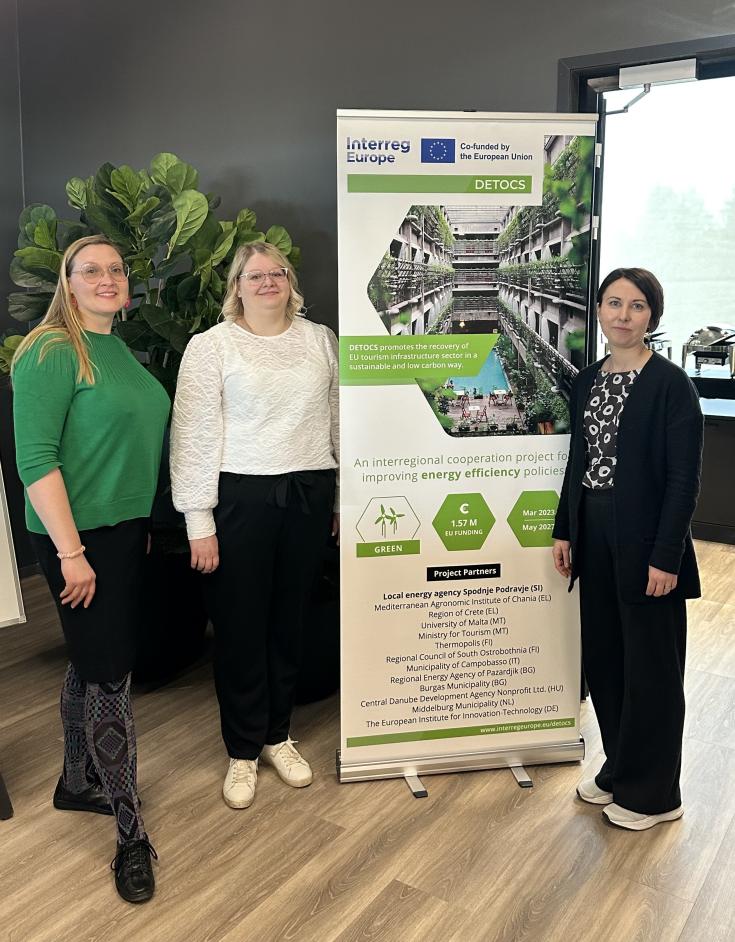Finland: Insights from the DETOCS Regional Workshop

A regional workshop for the DETOCS project was held on 9th April 2025 in Kauhajoki, Finland. The event brought together 24 participants representing a broad spectrum of tourism stakeholders, including educational institutions, entrepreneurs, and RDI actors.
The timing of the workshop was strategic, as the South Ostrobothnia Regional Programme is currently undergoing revision, with the updated version expected by the end of 2025. Spring 2025 presents a key opportunity to contribute to the content and direction of the new programme.
Participants worked collaboratively to align the policy instrument with the goals of sustainable tourism and improved energy efficiency in tourism businesses. The workshop also served as a platform for co-creating new project ideas, inspired by insights from the DETOCS project.
Three good practices from DETOCS partner regions were presented to stimulate discussion:
- GUEST – Guesthouse Owners and Users Embarking on a Sustainable Transition (Malta)
- Enhancing Sustainable Tourism in Middelburg through Digital and Virtual Experiences (Netherlands)
- Innovative Online Platform for Regional Climate Change Monitoring (Greece)
These examples sparked dynamic conversations and the generation of new ideas. One group shared that they had already outlined three potential project concepts during the session. The ideas and feedback gathered during the workshop will be summarised in a report to be submitted to the team drafting the updated Regional Programme. The collective efforts and innovative thinking demonstrated during the workshop are expected to influence the future direction of the programme, ensuring it addresses current challenges and opportunities in the tourism sector.
The workshop highlighted the value of cross-sectoral collaboration in shaping forward-looking, sustainable tourism policies tailored to regional needs.
